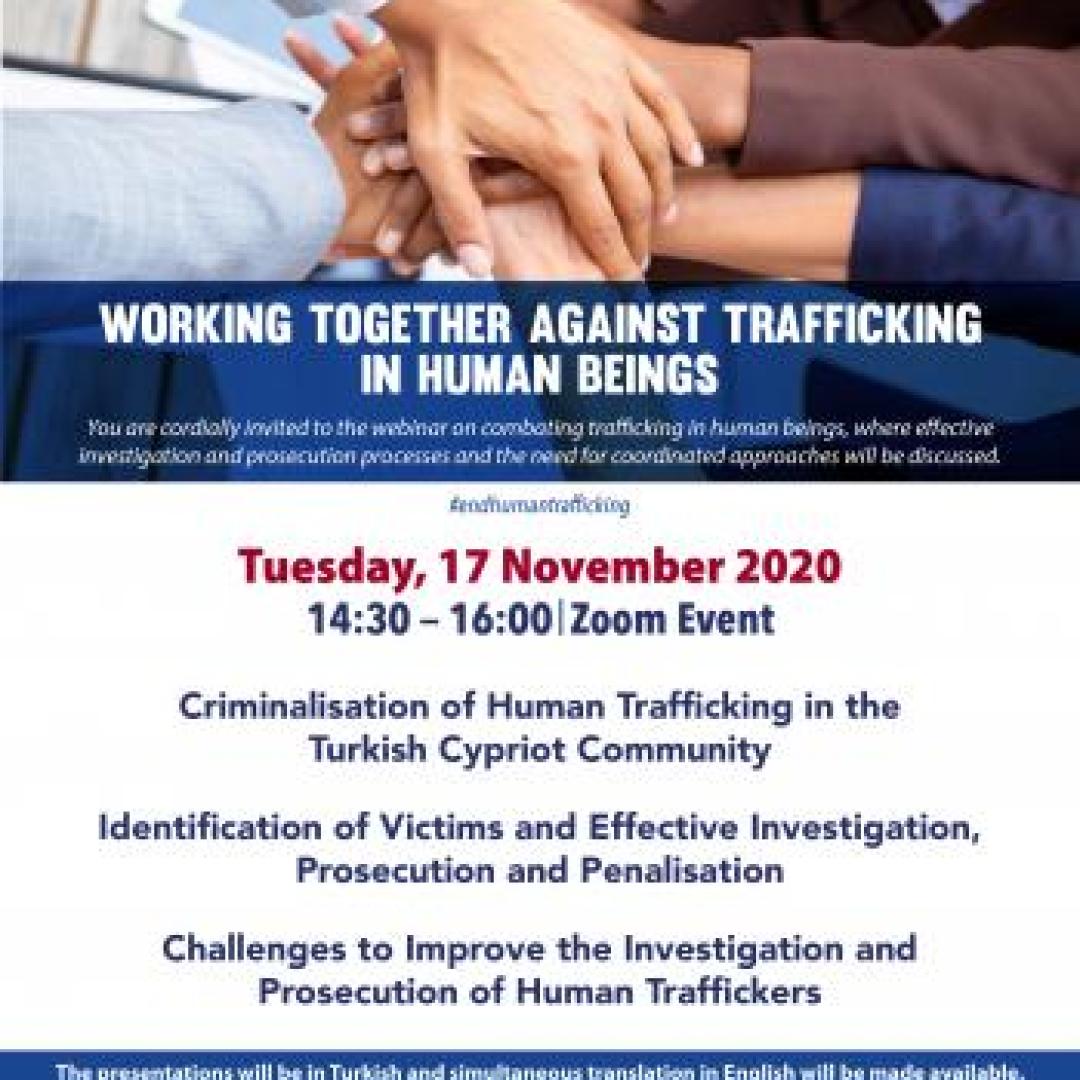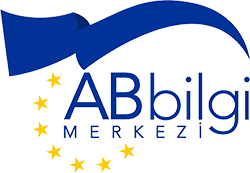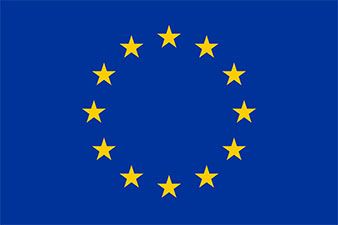EU Underlined Importance of Working Together Against Trafficking in Human Beings

The European Commission highlighted the importance of coordinated approaches among stakeholders and the necessity for effective investigation and prosecution processes to combat trafficking in human beings during a webinar on Tuesday, 17 November 2020 from 14:30 – 16:00 via Zoom. The webinar was also shared live on the EU Infopoint Facebook page.
During the webinar Attorney Fazilet Özdenefe delivered a speech explaining the criminalisation process of human trafficking in the Turkish Cypriot community while Attorney Deniz Düzgün from the Turkish Cypriot Bar Association presented how victims are identified and provided an overview of effective investigation, prosecution and penalisation procedures. Challenges in improving the investigation and prosecution of human traffickers was also discussed during the webinar.
Trafficking in human beings is a grave human rights violation, remains a highly profitable form of serious and organised crime, and is explicitly prohibited in the EU Charter of Fundamental Rights. Behind each victim lie devastating experiences and suffering that must be appropriately acknowledged and addressed, and more importantly, prevented. Given the harm caused to the victims, prevention remains a cornerstone of EU anti-trafficking action.
As part of the Aid Programme for the Turkish Cypriot community, the EU provided support through technical assistance projects, grants and TAEIX to contribute to the efforts of combatting trafficking in human beings. In 2019, the EU signed four grant contracts with a total budget of €770,000 under the call for proposal “Together Against Human Trafficking”. The COMMIT project implemented by Refugee Rights Association aimed to introduce a comprehensive anti-trafficking response through a multi stakeholder platform which has been actively involved in contributing to the legal process for the criminalisation of human trafficking in the Turkish Cypriot community. The Turkish Cypriot Bar Association project provides legal analysis on trafficking in human beings and a pilot legal aid programme to lobby for a sustainable aid mechanism. KAYAD’s project aims to raise awareness particularly on the trafficking of women and includes capacity building activities for relevant stakeholders. The project implemented by Queer Cyprus Association includes situation mapping for trafficked LGBTI+ individuals and aims to advocate for a coordinated response and provide social welfare services to LGBTI+ victims and those at risk.
Background:
As underlined in the European Agenda on Migration, the European Agenda on Security and other EU policy instruments, the EU remains committed to preventing and combating trafficking in human beings and to protecting victims’ rights, taking account, in particular, vulnerabilities of trafficked women and children. Moreover trafficking in human beings is a priority crime threat area in the 2018-2021 EU Policy Cycle on Organised and Serious International Crime. In addition, the political commitment to stepping up EU action against trafficking in human beings, within the EU and around the world, is supported by the Global Strategy on the European Union’s Foreign and Security Policy (EUGS) and by relevant EU strategies and action plans. In the last years, the European Union has established a comprehensive and consistent legal and policy framework for combating trafficking in human beings. This covers all EU policy areas relating to trafficking in human beings including funding and research.
The EU Strategy towards the Eradication of trafficking in human beings has been the main instrument for developing, coordinating and implementing EU action in this area. The actions which the Strategy lists under five key priorities relating to prevention, prosecution, protection of victims, partnerships, and improving knowledge have been implemented.

